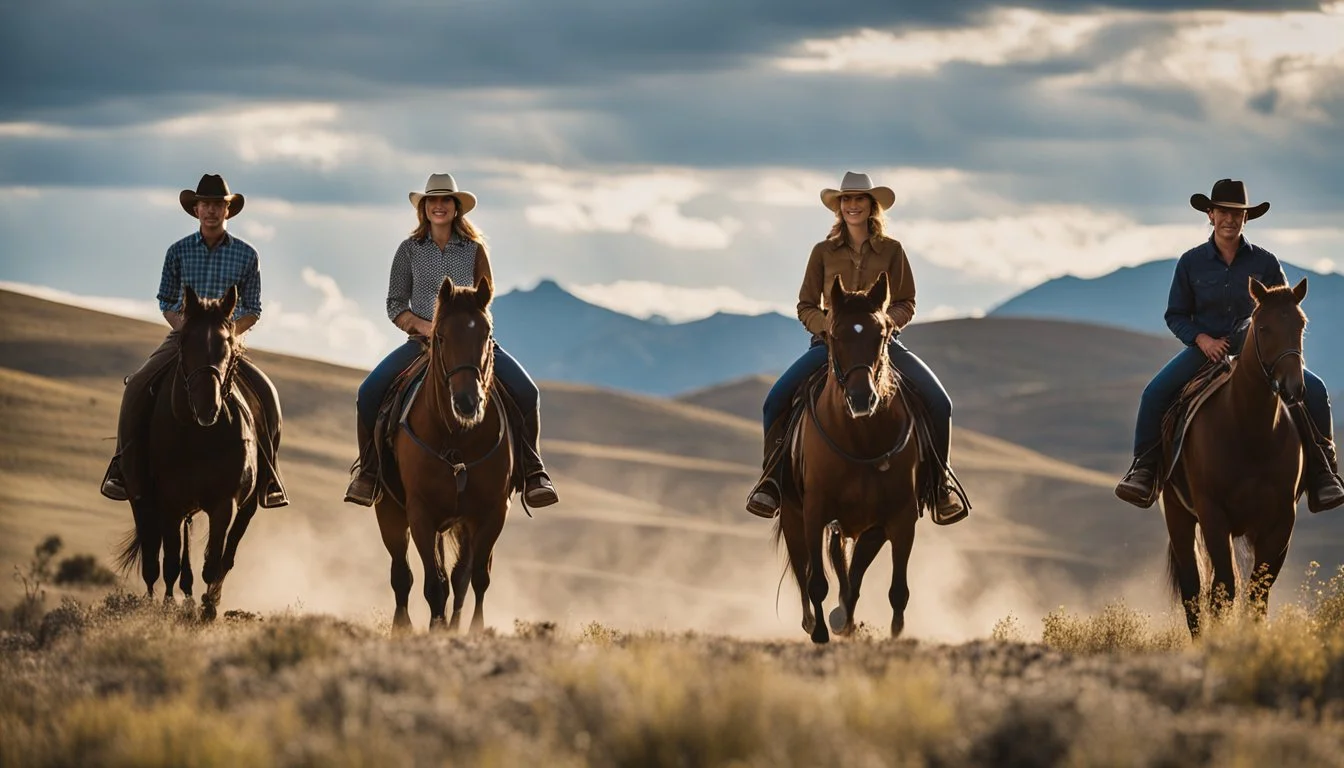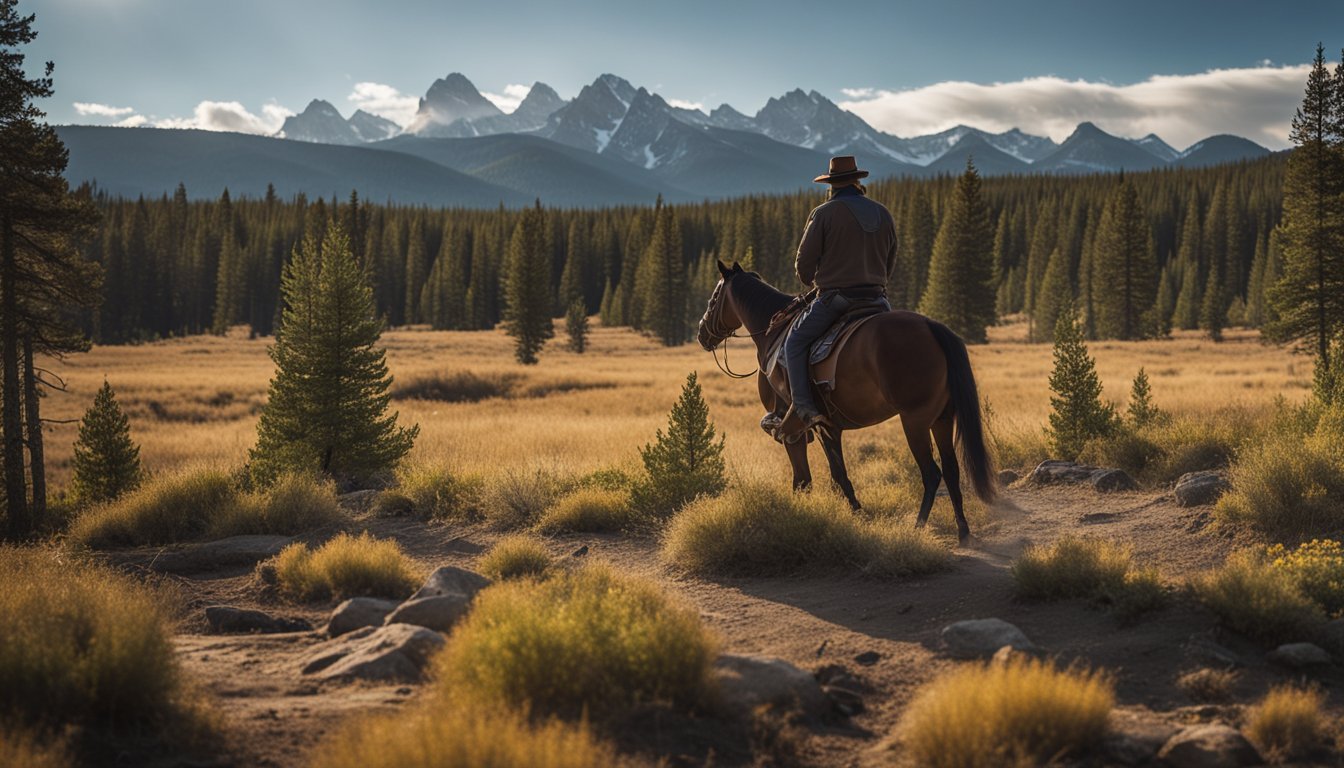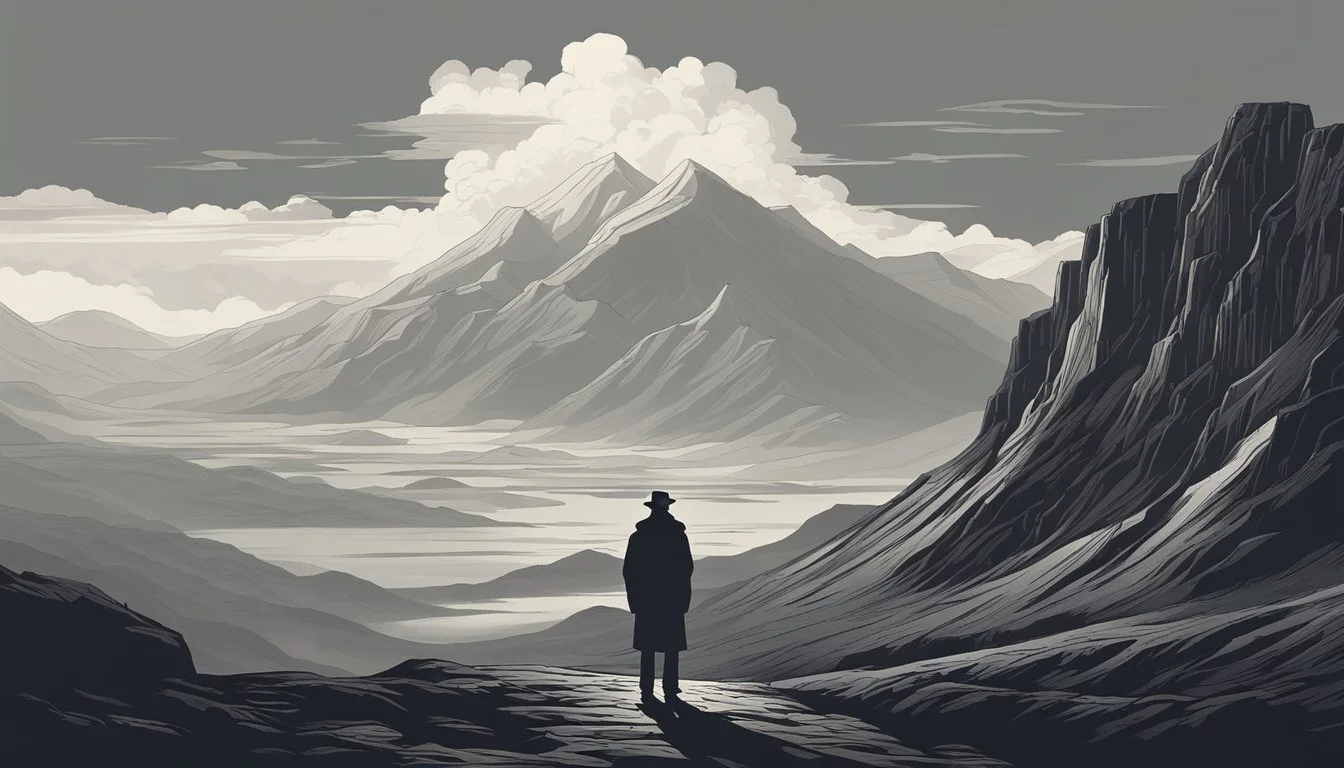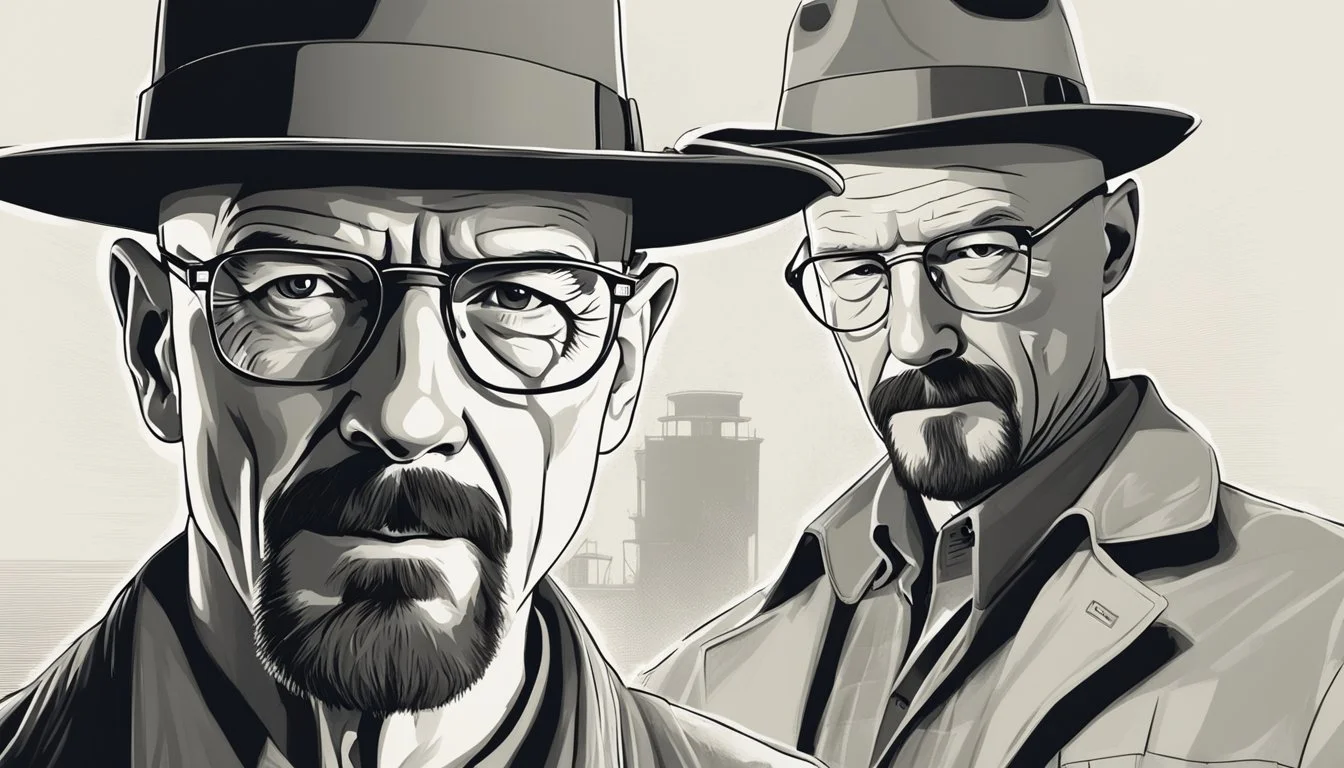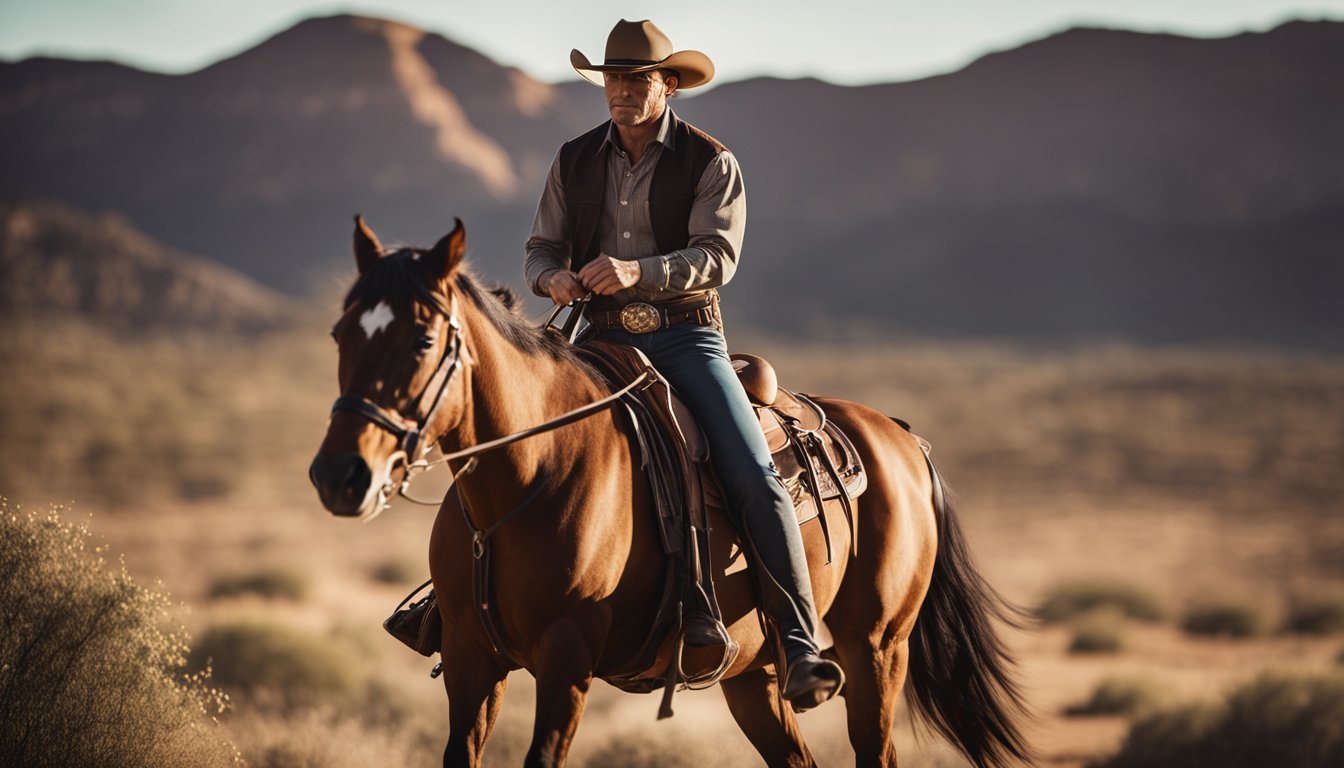John Dutton's Shocking Choice: What If He Never Became Governor of Montana?
Yellowstone's John Dutton made a bold move by running for governor of Montana. His victory as a political outsider shook up the state's power dynamics and set the stage for dramatic changes. If John Dutton had never pursued the governorship, the Yellowstone ranch and the Dutton family would face significantly different challenges and opportunities.
Without John as governor, the Duttons would lack direct control over state policies affecting their land. They might struggle more to fend off developers and corporate interests eyeing their vast acreage. The family would likely rely on alternative strategies to protect their legacy, such as forging alliances with other ranchers or leveraging their local influence.
John's decision not to run would also impact his children's trajectories. Jamie's political ambitions might have taken center stage, potentially leading to conflicts within the family. Beth's role as a strategic advisor would differ, possibly focusing more on business dealings than political maneuvering. The Duttons' story would unfold along a distinct path, shaped by their continued status as influential ranchers rather than holders of the state's highest office.
The Dutton Family Legacy
The Dutton family's legacy centers on Yellowstone Ranch, shaped by generations of leadership and struggle. John Dutton's decision not to run for governor would have profound implications for both the ranch and family dynamics.
The Impact of John Dutton's Leadership on Yellowstone Ranch
John Dutton's leadership style as a rancher differs significantly from that of a politician. Without the distractions of a gubernatorial campaign, he would likely focus more intensely on ranch operations.
His hands-on approach might lead to improved efficiency and profitability. John could dedicate more time to mentoring the next generation of Duttons in ranching practices.
The ranch might face fewer external threats without John's political enemies. However, it could also miss out on potential advantages that come with political connections.
John's undivided attention could strengthen the ranch's position against corporate interests and land developers seeking to encroach on Dutton territory.
Family Dynamics Without Political Aspirations
John's decision to remain solely a rancher would alter family relationships. His children might feel less pressure to prove themselves worthy of a political legacy.
The family could focus on preserving their ranching heritage rather than building political alliances. This shift might lead to stronger bonds centered around shared ranch responsibilities.
Conflicts within the Dutton family might decrease without the added stress of a political campaign. However, power struggles could still arise over ranch management decisions.
The Dutton Family Tree might see different branches emerge as priorities shift away from political influence and towards ranching expertise and innovation.
Yellowstone Ranch Operations
The Yellowstone Dutton Ranch faces complex challenges in maintaining its vast lands and cattle operations. John Dutton's focus on traditional ranching methods clashes with modern business pressures and encroaching development.
Ranching and Land Stewardship
John Dutton prioritizes preserving the ranch's legacy through traditional cattle ranching. The Yellowstone employs cowboys to manage herds, maintain fences, and tend to the land. Seasonal activities include cattle drives, branding, and hay harvesting.
Dutton resists modernizing operations, preferring time-honored techniques over newer, potentially more profitable methods. This commitment to tradition helps maintain the ranch's character but may limit its economic potential.
The ranch also leases grazing rights to smaller ranchers, providing additional income. Conservation efforts play a role in land management, with the Duttons working to protect wildlife habitats and natural resources on their property.
Conflicts with Market Equities and Broken Rock
Market Equities poses a significant threat to the Yellowstone Ranch, seeking to acquire land for large-scale development projects. The company's aggressive tactics include legal maneuvers and attempts to manipulate local politics.
Dutton staunchly opposes selling any part of the ranch, leading to ongoing conflicts and legal battles. These disputes strain resources and divert attention from day-to-day ranch operations.
The neighboring Broken Rock Reservation also presents challenges. Land disputes and competing claims to water rights create tension between the Duttons and the tribe.
Despite these conflicts, John Dutton remains committed to protecting the ranch's boundaries and way of life, often resorting to unconventional methods to fend off threats to his family's legacy.
Character Arcs and Relationships
John Dutton's decision not to run for governor would have profoundly impacted the trajectories of his children and closest allies. Their roles, motivations, and interpersonal dynamics would have shifted dramatically without the pressures of a political campaign.
Beth Dutton's Path and Influence
Beth's fierce loyalty to her father would have taken a different form without his gubernatorial aspirations. She might have focused her sharp business acumen and ruthless tactics solely on protecting Yellowstone Ranch from corporate interests.
Beth's relationship with Rip could have deepened sooner without the distractions of political maneuvering. Her ongoing conflict with Jamie might have found new outlets, perhaps centered more on ranch operations or family legacy disputes.
Without John's political ambitions to support, Beth may have pursued her own path to power in the corporate world. This could have led to intriguing alliances or rivalries with figures like Market Equities.
Kayce Dutton's Loyalties and Identity
Kayce's struggle between his Dutton heritage and his life with Monica would remain central to his character arc. Without John's campaign pulling him back to the ranch, Kayce might have more fully embraced his role as Livestock Commissioner.
His leadership skills could have developed in a different direction, focusing on bridging the gap between ranchers and the reservation. Kayce's relationship with his father might have been less strained, allowing for more genuine moments of connection and understanding.
The absence of political pressure could have given Kayce more time to explore his spiritual journey and Native American heritage. This personal growth might have influenced his decisions regarding the ranch and his family's legacy.
Jamie Dutton's Quest for Power
Without John's gubernatorial run, Jamie's political ambitions would likely have taken center stage. He might have pursued the governor's office himself, leading to intense family conflict. Jamie's adopted status and complicated relationship with the Duttons would still drive much of his character development.
His legal expertise would remain crucial to the ranch's survival, potentially putting him at odds with Beth's more aggressive tactics. Jamie's search for identity and acceptance might have led him to forge stronger connections outside the family, possibly with his biological father.
The power dynamics between Jamie and John would shift significantly. Jamie might feel more empowered to challenge his father's decisions, leading to a battle of wills over the ranch's future.
Rip Wheeler's Role at the Ranch
Rip's unwavering loyalty to John Dutton would remain a cornerstone of his character. Without the distractions of a political campaign, Rip might take on even more responsibility in ranch operations. His role as John's right-hand man could expand, possibly leading to tensions with other ranch hands or family members.
Rip's relationship with Beth could progress more smoothly without the added stress of John's political aspirations. His connection to the bunkhouse crew would likely deepen, solidifying his position as a leader among the ranch workers.
Rip might face new challenges in balancing his devotion to John with his growing bond with Beth. This could lead to compelling character development as Rip navigates his place within the Dutton family dynamic.
External Threats and Alliances
Without John Dutton as governor, the Yellowstone ranch faces escalated challenges from various external forces. Political maneuvering, tribal interests, corporate ambitions, and indigenous activism create a complex web of threats and potential alliances.
The Role of Governor Perry and Political Maneuvering
Governor Lynelle Perry remains a key political figure in Montana. She continues to balance state interests with those of powerful entities like the Dutton ranch and Market Equities.
Perry's policies likely focus on economic development, potentially clashing with the Duttons' desire to preserve their land. Her relationship with John Dutton shifts from political allies to a more complex dynamic of cooperation and competition.
The governor's office becomes a battleground for influence, with various factions vying for Perry's support. This creates opportunities for new alliances and unexpected adversaries for the Yellowstone ranch.
Tensions with Chief Thomas Rainwater
Chief Thomas Rainwater's ambitions for the Broken Rock Reservation persist. Without John Dutton in the governor's office, Rainwater may find new avenues to pursue his goals.
The chief could leverage his relationships with state officials and corporate interests to gain advantages for his tribe. This potentially puts additional pressure on the Yellowstone ranch's boundaries and resources.
Rainwater's strategies might include:
Legal challenges to land ownership
Negotiations for water rights
Partnerships with developers interested in reservation land
These actions force the Duttons to adapt their defensive strategies and consider new alliances.
Market Equities' Expanded Ambitions
Market Equities, unrestrained by John Dutton's gubernatorial influence, aggressively pursues its development plans. The corporation intensifies efforts to acquire land and secure permits for its ambitious projects.
Key Market Equities strategies include:
Lobbying Governor Perry for favorable policies
Seeking alliances with local businesses and landowners
Employing legal tactics to challenge Dutton land claims
The Yellowstone ranch faces increased pressure from Market Equities' financial resources and political connections. This forces the Duttons to rely more heavily on their local supporters and seek new ways to protect their interests.
Angela Blue Thunder and Native American Perspectives
Angela Blue Thunder emerges as a formidable voice for Native American rights. Her legal expertise and passionate advocacy challenge both the Dutton ranch and Chief Rainwater's approach.
Blue Thunder's actions include:
Filing lawsuits to reclaim ancestral lands
Organizing protests against corporate development
Negotiating with state officials for indigenous rights
Her involvement adds complexity to the existing power dynamics. The Duttons must navigate this new indigenous activism while maintaining their position against other external threats.
Blue Thunder's presence also creates internal tensions within the Native American community, as her methods sometimes clash with Rainwater's more pragmatic approach.
Season 5 Speculations and Theories
Season 5 of Yellowstone has sparked numerous fan theories about the fate of John Dutton and the ranch. Some speculate that John's absence from the governorship could lead to increased threats against the Yellowstone Dutton Ranch.
Without the political power of the governor's office, the Duttons might face more aggressive opponents seeking to take their land. This could potentially result in more intense conflicts and legal battles for the family.
Another theory suggests that if John hadn't run for governor, he would have focused more on grooming his children to take over the ranch. This could have led to different power dynamics within the family and possibly less internal strife.
Some fans believe that staying out of politics might have kept John safer from potential assassination attempts or scandals. However, it's worth noting that the Duttons have always faced dangers, regardless of their political involvement.
There's also speculation about how Taylor Sheridan, the show's creator, might have developed other storylines if John hadn't pursued the governorship. This could have included more focus on ranch operations or exploring new business ventures.
Paramount Network has not confirmed any of these theories, and the actual direction of the show remains to be seen as Yellowstone Season 5 continues to unfold.
The Cultural Impact of Yellowstone Series
Yellowstone has emerged as a cultural phenomenon, sparking discussions about American identity and rural values. The show's influence extends beyond entertainment, shaping perceptions of the modern West.
Fan Engagement and Media Response
Yellowstone's fanbase has grown tremendously since its debut. Viewers eagerly discuss plot twists and character developments on social media platforms. The series has inspired fan theories, merchandise, and even themed vacations to Montana.
TV critics have praised the show's cinematography and performances, particularly Kevin Costner's portrayal of John Dutton. Some reviewers note the series' ability to capture the complexities of rural America.
Yellowstone's success has led to spin-offs and prequels, expanding its universe. This expansion demonstrates the show's strong cultural foothold and audience demand for more content set in this world.
Representation of Ranching and Modern West
Yellowstone offers a glimpse into contemporary ranching life, showcasing both traditional practices and modern challenges. The series highlights conflicts between land developers, Native American tribes, and ranchers.
The show's depiction of the Dutton family ranch has reignited interest in Western lifestyles. It has influenced fashion trends, with viewers seeking to emulate the characters' rustic yet stylish attire.
Yellowstone raises awareness about issues facing rural communities, such as land conservation and economic pressures. This representation has sparked conversations about the preservation of Western heritage in a rapidly changing world.
The series, featuring Kelly Reilly and Wes Bentley alongside Costner, presents a nuanced view of family dynamics in a ranching context. It explores themes of loyalty, legacy, and adaptation in the face of evolving societal norms.
Ethical Dilemmas and Social Commentary
Yellowstone explores complex moral issues through its characters and storylines. The show tackles themes of land rights, conservation, and social justice against the backdrop of Montana's rugged landscape.
The Morality of Land Ownership and Conservation
John Dutton's fierce protection of his ranch raises questions about land ownership ethics. His actions often conflict with environmental concerns and Native American rights. The show highlights tensions between preserving traditional ranching and addressing modern conservation needs.
Summer Higgins, an environmental activist, challenges the Duttons' land use practices. Her presence forces characters to confront the environmental impact of their lifestyle. The series also touches on the ethical implications of wildlife management, particularly regarding predator reintroduction programs.
The Dutton family's claim to their vast property is contrasted with Indigenous land rights. This dynamic explores the complexities of historical land ownership and contemporary social justice issues.
Controversial Themes within the Series
Yellowstone doesn't shy away from controversial topics. The show addresses abortion through Monica's storyline, presenting the emotional and ethical complexities surrounding this issue.
The series depicts violence and its consequences, often blurring the line between justice and revenge. Characters frequently take the law into their own hands, raising questions about the limits of personal justice in modern society.
Yellowstone also explores the treatment of women in a male-dominated ranching culture. Beth Dutton's character challenges traditional gender roles, while also embodying some problematic stereotypes.
The show's portrayal of political corruption and power dynamics in Paradise Valley offers commentary on real-world issues of governance and influence.

